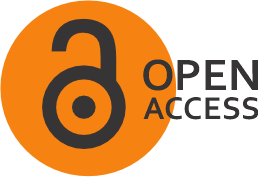MASSIKOLA: An Innovative Learning Model to Improve Cell Concept Understanding in High School Students

Published online: 1 Mar 2025
Abstract
Purpose-This study aims to develop the MASSIKOLA learning model to improve the quality of biology learning in high schools. This model is designed to be able to overcome challenges such as low student motivation, lack of relevance of material to everyday life, and minimal repetition of material. In addition, this model is also expected to instill the values of Sustainable Development Goals (SDGs) in the learning process. Methodology/Design/Approach-The method used in this study is a qualitative literature study. Researchers analyzed various relevant literature related to the constructivist, behaviorist, and SDGs integration approaches in biology education. The development of the MASSIKOLA model was carried out through the synthesis of these theories into nine stages of structured learning. Findings-The results of the analysis show that the MASSIKOLA model consists of nine main stages: triggering problems, problem analysis, solution studies, solution simulations or simple experiments, interpretation of simulation or experimental data, contributions to SDGs related to certain cellular/molecular/systemic biology topics; repeated observations to strengthen understanding; solution reports as a form of reflection; and real action as the implementation of knowledge to the surrounding environment. Originality/value-The development of the MASSIKOLA model not only answers the need to improve the quality of the teaching and learning process but also builds students' awareness of current global issues.
References
Brophy, J. (2013). Motivating Students to Learn. London: Lawrence Erlbaum Associates, Publishers.
Joyce, B., Weil, M., & Calhoun, E. (2015). Models of Teaching. New York: Pearson Education.
Hmelo-Silver, C. E. (2004). Problem-Based Learning: What and How Do Students Learn? Educational Psychology Review, 16(3), 235-266. https://doi.org/10.1023/B:EDPR.0000034022.16470.f3 DOI: https://doi.org/10.1023/B:EDPR.0000034022.16470.f3
Kolb, D. A. (1984). Experiential Learning: Experience as the Source of Learning and Development. Prentice Hall.
Piaget, J. (1970). Science of Education and the Psychology of the Child. Orion Press.
Driver, R et all. (1994). Constructing Scientific Knowledge in the Classroom. Educational Researcher, 23(7), 5-12. https://doi.org/10.3102/0013189X023007005 DOI: https://doi.org/10.3102/0013189X023007005
Purwanto, N. (2020). Psikologi Pendidikan. Remaja Rosdakarya. https://doi.org/10.22219/jinop.v6i1.10196 DOI: https://doi.org/10.22219/jinop.v6i1.10196
Skinner, B. F. (1953). Science and Human Behavior. Macmillan.
Slavin, R. E. (2009). Educational Psychology: Theory and Practice. Pearson.
Anderson, A., & Sharma, A. (2015). Education for Sustainable Development: A Global Perspective. Journal of Environmental Education, 46(3), 173–191. DOI:10.25215/9392917716 DOI: https://doi.org/10.25215/9392917716
Stevenson, et all. (2017). International Handbook of Research on Environmental Education. Routledge.
Suwignyo, H., Purnamasari, I., & Wibowo, S. (2020). Integrasi Kearifan Lokal dalam Pendidikan. Jurnal Pendidikan Indonesia, 9(2), 87–95 DOI:10.36636/primed.v4i3.4565 DOI: https://doi.org/10.36636/primed.v4i3.4565
Wahyuni, et all. (2021). Penggunaan Kearifan Lokal sebagai Media Pembelajaran Biologi. Biosfer: Jurnal Pendidikan Biologi, 12(1), 45–53. DOI:10.57176/jn.v2i2.51 DOI: https://doi.org/10.17977/um052v12i1p45-51
Slavin, R. E. (2011). Educational Psychology: Theory and Practice (10th ed.). Pearson Education.
Joyce, B., Weil, M., & Calhoun, E. (2015). Models of Teaching (9th ed.). Boston: Pearson.
Piaget, J. (1972). The Principles of Genetic Epistemology. London: Routledge.
Makmur, Sitti Maghfirah et all. (2023). Penguatan Nasionalisme Melalui Pembelajaran Pancasila dan Metode Repetisi bagi Siswa di Sanggar Bimbingan Rawang Selangor, Malaysia. Buletin KKN Pendidikan, 5(1). p 74-83. https://doi.org/10.23917/bkkndik.v5i1.22671 DOI: https://doi.org/10.23917/bkkndik.v5i1.22671
Marzano, R. J. (2007). The Art and Science of Teaching: A Comprehensive Framework for Effective Instruction. ASCD.
Nurhapsari, R. (2016). KARAKTERISTIK PENGEMBANGAN MODEL PEMBELAJARAN PDC (PREPARATION, DOING, CONCLUSSION) UNTUK PEMBELAJARAN IPA DI SMP. JURNAL PEMBELAJARAN FISIKA, 4(5), 250-261. Retrieved from https://jurnal.unej.ac.id/index.php/JPF/article/view/3597
Vygotsky, L. S. (1978). Mind in Society: The Development of Higher Psychological Processes. Cambridge, MA: Harvard University Press.
Priyayi, D. F. (2018). Masalah dalam pembelajaran menurut perspektif guru biologi sekolah menengah atas (SMA) di Salatiga dan Kabupaten Semarang. Didaktika Biologi , 8. DOI: https://doi.org/10.32502/dikbio.v2i2.1243
Saputra, A. (2022). Analisis permasalahan yang dihadapi siswa SMA pada pembelajaran biologi dari pada masa pandemi covid -19. Bio-Pedagogi: Jurnal Pembelajaran Biologi, 41. DOI:10.20961/bio-pedagogi.v11i1.52335 DOI: https://doi.org/10.20961/bio-pedagogi.v11i1.52335
Saputro, M. N Adi dan Poetri L.P. (2021). Mengukur Keefektifan Teori Konstruktivisme dalam Pembelajaran. JOEAI: Journal of Education and Instruction, 4(1), p 28-29. https://doi.org/10.31539/joeai.v4i1.2151 DOI: https://doi.org/10.31539/joeai.v4i1.2151
Trisiana, et all. (2019). Model desain Pendidikan Kewarganegaraan di era media digital sebagai pendukung implementasi pendidikan karakter. Jurnal Civics: Media Kajian Kewarganegaraan, 16(2), 154-164. https://doi.org/10.21831/jc.v16i2.24743 DOI: https://doi.org/10.21831/jc.v16i2.24743
Yuliani, Yennita dan Andi Ulfa Tenri Pada. (2021). Implementasi Model Discovery Learning Dipadu Modul Sistem Ekskresi Berbasis Konstruktivisme untuk Meningkatkan Keterampilan Berpikir Kritis Peserta Didik. Jurnal Pendidikan Sains Indonesia, 9(3):376-390, 2021. https://doi.org/10.24815/jpsi.v9i3.19965 DOI: https://doi.org/10.24815/jpsi.v9i3.19965
License
Copyright (c) 2025 The Author(s). Published by Borneo Novelty Publishing

This work is licensed under a Creative Commons Attribution 4.0 International License.
Permission is granted subject to the terms of the License under which the work was published. Permission will be required if your reuse is not covered by the terms of the License.

